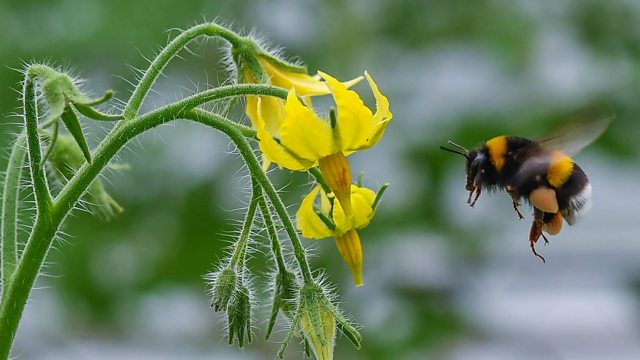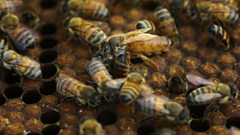The Bee All and End All
Bees pollinate plants, can detect bombs and compose music. What would we do without them?
Bees pollinate and can detect bombs and compose music. What would we do without them? The world owes a debt of gratitude to this hard working but under-appreciated insect. One third of the food we eat would not be available without bees, meaning our lives would be unimaginably different without them.
Bee populations are dropping by up to 80% in some countries and the consequences are potentially catastrophic. The use of neonics pesticides in farming has been one of the main causes in the decline in bee numbers and now the farming world is having to take drastic action to try and reverse the trend. The situation has become so dire in some parts of China that the government set up a scheme in which humans had to pollinate plants by hand. Researchers in America have been so worried about a world without bees that they have started to develop robotic 'insects' to emulate their work. What鈥檚 causing the drop in populations and what might save them?
Dr George McGavin hears from scientists and researchers in Africa, South America, Europe and Asia about the extraordinary lives and impact of bees, hearing the amazing ways in which they communicate and learn, and how complex and diverse different bee species are.
Last on
More episodes
Previous
Clip
-
![]()
Training bees to detect land mines
Duration: 01:25
Broadcasts
- Mon 3 Apr 2017 19:32GMT大象传媒 World Service except News Internet
- Tue 4 Apr 2017 02:32GMT大象传媒 World Service Americas and the Caribbean
- Tue 4 Apr 2017 04:32GMT大象传媒 World Service Online, Australasia, Europe and the Middle East & UK DAB/Freeview only
- Tue 4 Apr 2017 05:32GMT大象传媒 World Service South Asia
- Tue 4 Apr 2017 06:32GMT大象传媒 World Service East and Southern Africa & East Asia only
- Tue 4 Apr 2017 13:32GMT大象传媒 World Service Australasia
Space
The eclipses, spacecraft and astronauts changing our view of the Universe
The Curious Cases of Rutherford and Fry
Podcast
-
![]()
Discovery
Explorations in the world of science.




